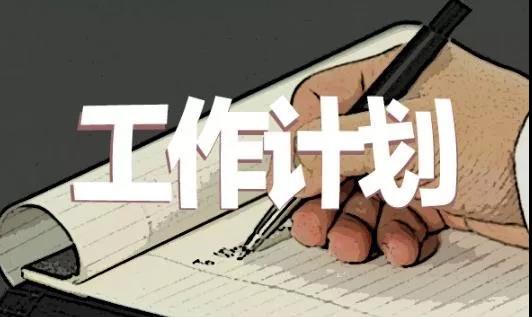利奇的礼貌原则 [对利奇的礼貌原则的反思]
时间:2019-02-03 05:40:31 来源:千叶帆 本文已影响人
摘 要:本文通过分析利奇的礼貌原则发现这一原则的特点并阐发作者对这一原则的反思。本文认为Leech的礼貌原则侧重于英国人的性格,而对于自古重视“中庸”与“和谐”的中国人未必完全合适。
关键词:利奇的礼貌原则,特点,反思
Reflections on Leech’s Politeness Principle
Abstract:This article focuses on reflections of Leech’s Politeness Principle on the basis of finding its characteristics. The author argues that Leech’s Politeness Principle is formed mainly on the basis of the British characteristics and is not necessarily suitable for the Chinese People who have been advocating “the Doctrine of Golden Mean” and “harmony” since antient times.
Key Words:Leech’s Politeness Principle; Characteristics; Reflections
I. Introduction
This article focuses on reflections of Leech’s Politeness Principle on the basis of finding its characteristics.The author argues that Leech’s Politeness Principle is formed mainly on the basis of the British characteristics and is not necessarily suitable for the Chinese People who have been advocating “the Doctrine of Golden Mean” and “harmony” since antient times.
II. The Characteristic of Leech’s Politeness Principle
Maxims of Leech’s Politeness Principle can be illustrated by the following figure.
From the figure a characteristic can be found from the maxims of the Politeness Principle, ie.the polarities presented in maxims of Leech’s PP by “minimize” and “maximize”, “other” and “self”, “cost” and “benefit”, “dispraise” and “praise”, “disagreement” and “agreement”, and “antipathy” and “sympathy”.Through these polarities, Leech attempts to stress the virtues presented by speech from the perspective of enhancing interpersonal harmony―interpersonal rhetoric.
III. Reflections on Leech’s Politeness Principle
Leech’s Politeness Prinicple, on the whole, is useful for maintaining interpersonal harmony in verbal communication in a way; but it is too general. For example, it ignores the study of how to distinguish between politeness and face. He does not explain how to and what speech acts observe or violate the Principle, nor does he explain how both sides of participants understand and regard its maxims.
The first two maxims emphasize the importance of “damaging oneself to be altruistic” too much, it does not necessarily tally with the actual situation; generosity does not mean feebleness and modesty not self-abase. It’s OK to benefit self without damaging other or to benefit others without damaging self; however, damaging others to benefit self is absolutely not appreciated. In case of the contradiction of benefiting self and benefiting others, it is appreciated and loftier to choose the latter; otherwise one is bound to be punished in one way or another if he does reversely. According to Austin’s viewpoint “to say something is to do something”, the idea of “damaging self to benefit the other” is not necessarily practical for it damages the fair doctrine.
“Maximize praise of other” has a tendency of flattering. Hence sincerity is necessary to limit the excess of flattering. “Maximize dispraise of self” has the likeliness of leading to the speaker’s having no urge to make progress and feeling inferior to others, or the likeliness of baiting a trap for others to be caught in; “Maximize agreement between self and other” gives the speaker a laudatory title of “a yes-man”.
Another point worthy of notice is that Leech’s PP is characteristic of British character and manners: exclusiveness, conservativeness, special ways of politeness, love of privacy, stiff upper lip and special sense of humor. It’s no wonder that the Politeness Principle stresses negative politeness more than the positive. In Britain, all politeness is based on the basic rule of showing consideration for others. The British people do not readily ask you to do anything inconvenient for them. They prefer to wait for such service to be offered, rather than ask for it. If they do want to ask, you would hear them say so with an implied apology like, “I know the trouble I am causing you, but would you mind…?” or “I don’t really like asking you, but…”, and so on. The English sense of humor is self-deprecating: laughing at oneself.
The Politeness Principle stresses pleasantness from perspective of interpersonal rhetoric; maximizing benefit to other (tact maxim), maximizing praise of other (approbation maxim), maximizing agreement between self and other (agreement maxim) and maximizing sympathy between self and other (sympathy maxim) , all lead to pleasantness to other. However, his generosity maxim (maximizing cost to self) and modesty maxim (maximizing dispraise of self) show pleasantness to other by self-cost and self-dispraise. The Politeness Principle gives people a sense of other-pleasantness and self-unpleasantness. However, pleasantness ought to be bi-winning on both sides of self and other.
In brief, the above maxims of Leech’s Politeness Principle give people a sense of insincerity or a false impression which aims at cheating others.It is clear that the mode of thinking emphasizing the importance of going to extremes by the West is not necessarily suitable for the actual conditions of China who has been walking a way of “the doctrine of the mean” which advocates that not going to extremes and stabilization are fixed justice for all things. Restricted by other principles, the PP would be more acceptable.
IV. Conclusion
This article emphasizes the using of polite language because politeness is like a mirror into which everything is imitated simultaneously, viz.the force of politeness is mutual for both sides of participants. Polite language is an inseparable ingredient of rules of words and deeds and ethic in any society. Polite language in the broad sense refers to any language according with politeness and the using of polite language. Polite language in the narrow sense merely refers to special words and expressions for etiquettes of various communicative occasions. The degree of popularization of polite language is a sign of the degree of the nation’s civilization. In daily life, the using of chaste, healthy and graceful polite language can harmonize interpersonal relationships of various aspects; it can also urge people to live together in a friendly way, to respect each other in solidarity and friendship, thus helping to produce cohesive force, to cultivate superior moral sentiment and to enhance the formation of the new look of fine social morality. However, this article regards the Politeness as one aspect of harmonious verbal communication; polite language should be used appropriately; both lack of politeness and over-politeness might bring trouble to verbal communication. ■
作者简介:
汪顺强(1966-),山东肥城市人,硕士,专业:外国语言学及应用语言学,研究方向:语言学理论及应用。现任重庆科创职业学院外语系副主任。







